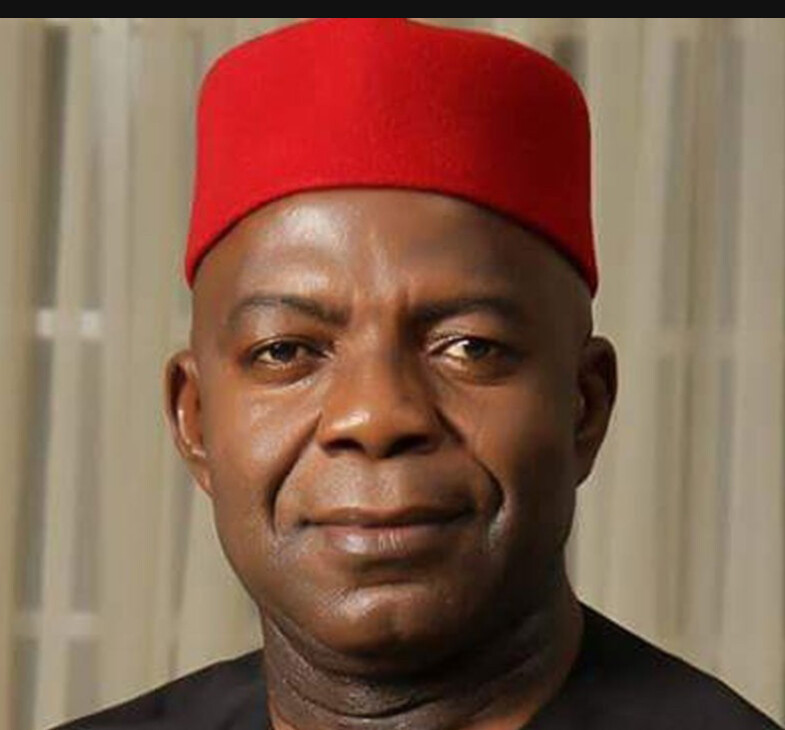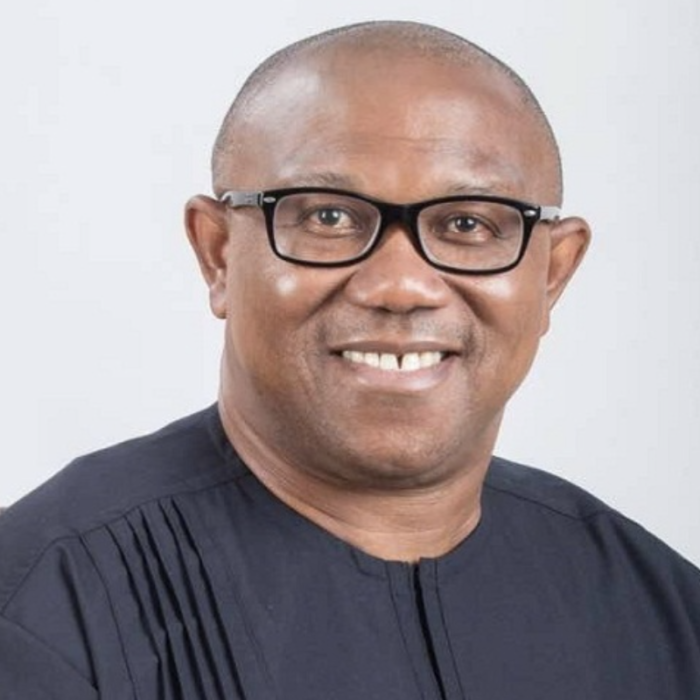By Nnaoke Ufere, Ph.D
Nnaoke Ufere is a columnist and opinion writer for the African Mind Journal, where he contributes a weekly column on leadership, politics, and economic development.
Barely two years into his tenure, Governor Alex Otti of Abia State has captured the admiration of many, myself included.
This admiration has been expressed in many forms. From the enthusiastic endorsements of President Bola Tinubu, who praised his transformative leadership, to the commendations of former Presidents Goodluck Jonathan and Olusegun Obasanjo, and the exuberant acclaim from Ohanaeze Ndigbo, who declared Governor Alex Otti a “grade A” governor, it seems Governor Otti was already on a celebratory tour at the completion of his term, even though he is only midway through his first term tenure.
Adding to this wave of approval, even Senator Orji Uzor Kalu, ironically, has visited him with investors in tow, despite his party’s aim to unseat Otti in 2027. Governor Babajide Sanwo-Olu of Lagos has also publicly praised his performance.
Beyond the political endorsements, the praise on social media has been even more intense. On these platforms, the adulation borders on messianic. AI-generated content amplifies his achievements, while the expected Igbo culture of effusive praise envelops him in the aura of a modern-day hero. To them, Governor Otti has already exceeded expectations.
As someone who has admired Otti long before his rise to the governorship, and as a stakeholder deeply invested in the fortunes of Abia State, his early efforts are encouraging.
However, admiration must not blind us to important realities. I am compelled to issue a sober warning: Governor Otti must beware the dangers of premature triumphalism.
The context cannot be ignored. It is true that he inherited a state in ruins, battered by years of neglect, mismanagement, and a cavalcade of broken promises.
Against such a backdrop, even modest improvements like repairing key roads, paying off some salary arrears, showing genuine empathy during a visit to a university hostel, or restoring a semblance of fiscal discipline can feel revolutionary.
But this is where the real danger lies: after years of broken promises and poor governance, the expectations of the people of Abia have been worn down to the point where even the most basic acts of leadership—like paying salaries on time or fixing essential infrastructure—can be seen as extraordinary.
This reflects what political observers and analysts often describe as the Expectation Deficit Effect, a term that captures how prolonged leadership failure distorts public perception and lowers expectations, weakening the standard by which leaders are judged.
As a result, ordinary outcomes are often misinterpreted as signs of exceptional performance, and routine duties are praised as though they were extraordinary achievements.
Consequently, both we and Governor Otti must resist the temptation to measure his success by comparing it to the dismal failures of his predecessors. That standard is far too low, and ultimately, it is the wrong benchmark.
Instead, he must be measured against the real needs of the people of Abia, the bold promises he made during the campaign, and the high standards of transformative leadership required to lift Abia permanently out of its developmental quagmire.
Meeting such a standard demands much more than early momentum. It means delivering lasting infrastructure, not just temporary fixes or cosmetic road repairs, but building durable roads, bridges, and utility systems that will serve future generations. Partnering with Geometric Power to enhance the supply of affordable electricity is essential for unlocking economic growth.
It also demands removing the bureaucratic and financial obstacles that stifle innovation and entrepreneurship. This includes streamlining regulations, eliminating unnecessary inspections, and cutting back on excessive taxes and levies that burden small businesses.
Furthermore, it requires the revitalization of Aba into a true industrial and commercial hub where local businesses can flourish and attract global investment.
It demands the overhaul of healthcare and education systems, ensuring that quality services are accessible to all citizens, not just a privileged few.
It calls for an aggressive agricultural revival, which the governor has previously emphasized, to generate jobs, ensure food security, and diversify the state’s economy beyond oil revenues and federal dependence.
Transformative leadership would also involve empowering local governments to function effectively, reforming the civil service for greater efficiency, fostering youth entrepreneurship, and ensuring the regular, debt-free payment of salaries and pensions — not as acts of generosity, but as basic responsibilities of governance.
Critically, it also demands that Governor Otti pursue accountability with unwavering commitment. He must demonstrate that the rule of law applies to all, including those who once wielded power.
This includes prosecuting his immediate predecessor, Okezie Ikpeazu, for alleged financial crimes that Otti himself publicly revealed after taking office, particularly the N79.3 billion paid to seven contractors for projects never executed, N15.9 billion disbursed to 63 contractors without any supporting documentation, N12 billion paid to two contractors for contracts that do not exist, and the unaccounted N10 billion purportedly allocated to the phantom Abia Airport project.
Failure to act on these allegations would not only betray the people’s trust but would also entrench the culture of impunity that has crippled Abia for decades.
Most importantly, Otti must focus on building strong, resilient institutions that can endure beyond his tenure. It means creating a government rooted in transparency and accountability, where corruption is not only punished when it occurs but actively prevented through systemic reforms and strong institutions.
True success will not be measured by his personal popularity or momentary achievements, but by the establishment of systems that secure progress for generations to come. Only then can he truly claim a place among the transformative leaders he aspires to emulate.
Historically, triumphalism, that intoxicating mix of praise, propaganda, and complacency, has been the undoing of many promising Abia leaders. In Abia, a familiar cycle plays out: a new governor assumes office, criticizes his predecessors, addresses a few low-hanging fruits, and quickly earns early applause.
However, with the next election still far off, he gradually slides into inertia, arrogance, and a growing disconnect from the people. As election season nears, he scrambles to initiate flashy but superficial projects designed to create an illusion of progress. Once he secures a second term, the cycle resumes, marked by the same underperformance and neglect that defined his first term. For proof, one need only look at the legacy of Otti’s predecessors, every single one of them.
If Governor Otti is to avoid falling into this familiar trap, he must lead with discipline, focus, and a long-term vision, qualities I believe he possesses. It is only through this steady, purposeful approach that he can steer clear of the pitfalls that have ensnared those who came before him.
This is especially important because premature triumphalism brings grave consequences. When leaders begin to celebrate too early or mistake early gains for lasting success, they risk losing momentum, disconnecting from reality, and ultimately repeating the same cycle of underperformance. In the process, they also lose public trust—a loss far more difficult to recover than political capital.
Governor Otti must guard carefully against these dangers. He must listen less to praise singers, many of whom will abandon him at the first whiff of difficulty. He must stay focused on execution, set clear and realistic goals, and remain committed to the long, grinding work of state-building.
Governing a state is not a sprint; it is a marathon. History will not judge him by the fanfare of his beginnings, but by the durability of his achievements, the resilience of his reforms, and the well-being of the people at the end of his tenure.
It is essential that Governor Otti recognizes that the weight of history and the hopes of millions now rest on his shoulders. In light of this, I advise him to remain humble in success, relentless in pursuit of progress, and focused on the long and demanding road ahead.
Only through steadfast discipline and an unshakable commitment to genuine service will the victory we all hope for become real, lasting, and truly deserving of the extraordinary trust you’ve been given.
I urge Abians to raise the bar, expect more, demand better, and reject the bare minimum as acceptable leadership. The future of the state is a shared responsibility, a joint venture in which government and citizens rise or fall together.
Therefore, we must move beyond passive observation and embrace active participation. We must hold our leaders accountable, contribute to our communities, demand transparency, and uphold the values that foster progress. Only through collective effort can we build a state that reflects our highest aspirations and secures a better future for all.
To Governor Otti, we stand with you, not out of blind loyalty, but out of a shared belief in what is possible. We support your mission, and we will hold you to the standard this moment demands.




